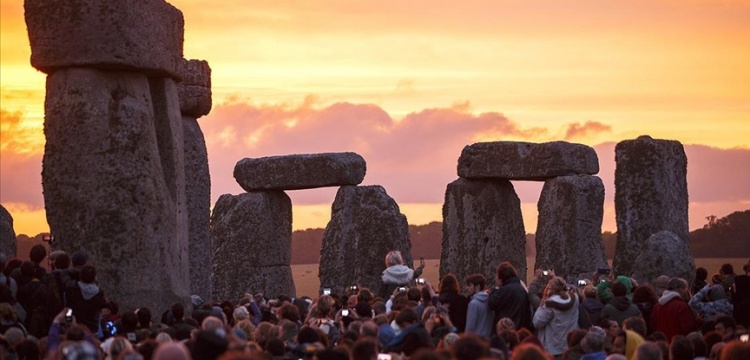Researchers believe Stonehenge stone was brought from Scotland

Stonehenge's Altar Stone traced to Scotland: New study unveils ancient transport route. Six-ton sandstone slab identified as originating from northeastern Scotland, shifting previous theories
Neolithic sailors may have transported the six-ton Altar Stone of Stonehenge from northeastern Scotland to Salisbury, England, around 4,500 years ago, according to a groundbreaking study published in Nature on Wednesday.
“This is a fantastic study with significant implications,” says Jim Leary, a field archaeologist at the University of York.
The Altar Stone, a large sandstone block measuring 5 meters by 1 meter (16 feet by 3 feet) and lying flat at the center of Stonehenge, is one of the largest of the monument’s bluestones. Earlier research had suggested it might have come from Wales.
The new study uses dating and chemical analysis of tiny zircon, rutile, and apatite crystals from fragments of the Altar Stone, pinpointing its origin to the Old Red Sandstone formations of the Orcadian Basin in northeastern Scotland.
“It’s like finding a fingerprint,” says Anthony Clarke, a geochronologist at Curtin University in Perth, Australia, who led the study. “The match with the Orcadian Basin is perfect, while there’s no match with anything in England or Wales.”
The method used to transport the stone from Scotland or the Orkney Islands to southern England remains debated. Geologists have ruled out glacial transport.
“There is simply no evidence for it,” Clarke says. “This stone was brought here by human means.”
Whether the transportation was by land or sea is still uncertain. The 800-kilometer (497-mile) journey between Scotland and Stonehenge is rugged, suggesting a challenging voyage.
Leary believes a sea journey is most plausible. “We seriously underestimate their abilities and technologies,” he says. “While we’ve never found their boats, we know they could transport cattle, sheep, and goats by sea.”
Regardless of the method, the transport of such a significant stone likely was a remarkable feat.
The discovery of the Altar Stone’s Scottish origin is just the beginning. “We still need to narrow down the exact location where it was obtained,” says study co-author Rob Ixer, a geologist at University College London who has spent decades tracing the sources of Stonehenge’s monoliths.
